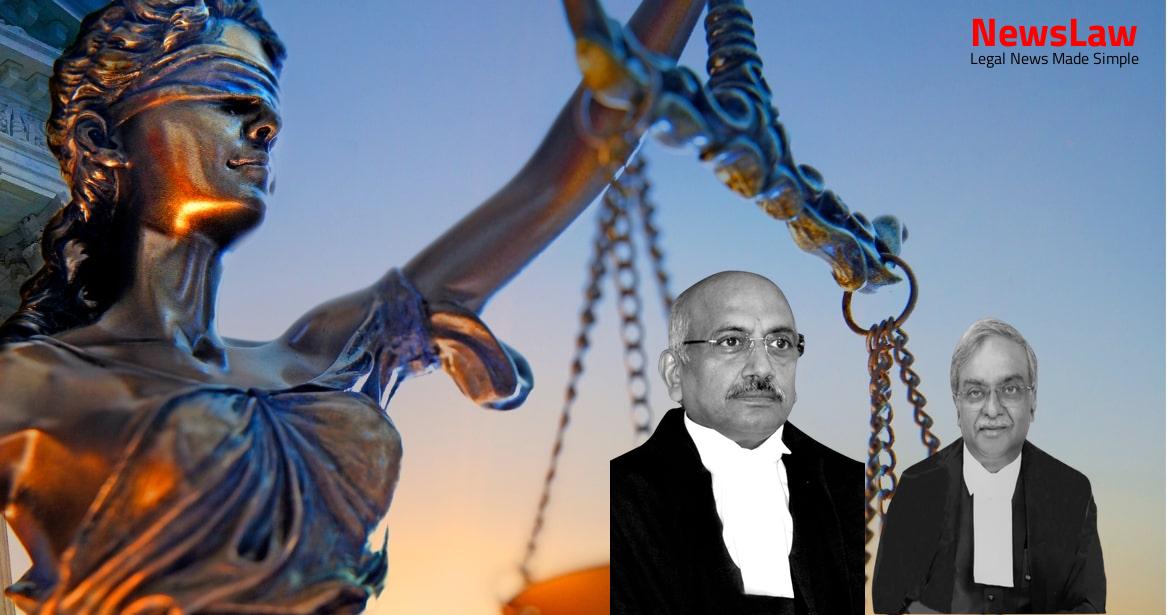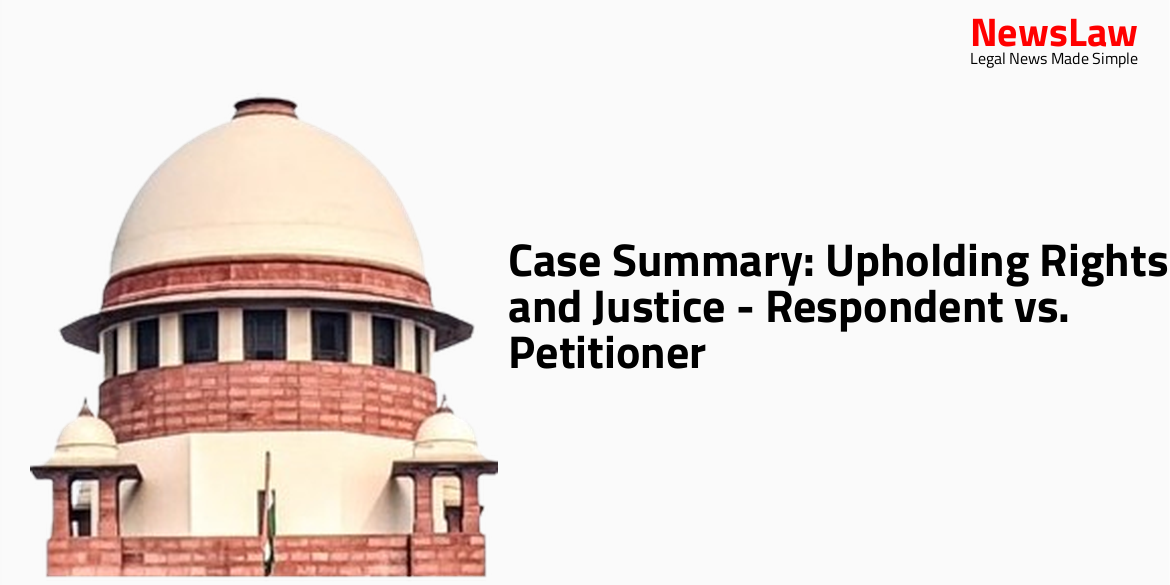The recent legal case pertaining to search and seizure authorization under Section 132(1) of the Income Tax Act has brought forth a nuanced discussion on the scope of judicial review. The High Court’s analysis of the sufficiency of reasons to believe and the limitations of its jurisdiction in evaluating such reasons presents a notable insight into the legal intricacies surrounding search and seizure operations. In this case, the emphasis lies on the court’s legal analysis, highlighting the importance of factual grounds and honest intentions in exercising the power for search and seizure.
Facts
- The Revenue’s counter-affidavit raised doubts on the transaction between the assessee and the company in question, citing a familiar modus operandi of entry operators.
- The High Court of Gujarat quashed the warrant issued by the appellant under Section 132 of the Income Tax Act, rendering subsequent actions invalid.
- The assessee claimed to have provided a loan to M/s. Goan Recreation Clubs Private Ltd. for business setup, with property offered as security by the borrowing company.
- No allegations of mala-fides were made against Revenue officers, but the search and seizure authorization was challenged by the assessee in the writ petition as a fishing enquiry.
- The loan was secured by mortgaging a property in Village Bambolim, Distt. North Goa.
- The investment made by the assessee was deemed imprudent by the Revenue due to the borrower company’s lack of established business, market goodwill, stock exchange listing, or prior financial dealings with the assessee.
- The High Court referred to paragraph 4.3 from an affidavit filed by the Revenue
- None of the reasons to believe to issue authorization met the requirement of Section 132(1)(a), (b), and (c)
Also Read: Landmark Judgment on Compensation for Fatal Accident
Arguments
- The Revenue argued that the High Court misdirected itself in quashing the authorization, stating that the jurisdiction of the High Court in judicial review is limited.
- It was contended that the High Court erred in finding that clauses (b) and (c) of Section 132(1) of the Act are not satisfied.
- The Revenue clarified that they are not invoking clause (a) of sub-section (1) of Section 132 of the Act, but the High Court erroneously stated that even clauses (b) and (c) are not satisfied.
- The Assessee’s argument, represented by Mr. Datar, supported the High Court’s decision that none of the pre-requisite conditions for search and seizure under Section 132 of the Act are met.
- Mr. Balbir Singh referenced various judgments to support the contention that the High Court’s jurisdiction is to examine the existence of reasons, not the legality of the same.
Also Read: Land Acquisition Compensation Legal Analysis
Analysis
- The Revenue’s belief in conducting the search was not unreasonable, considering the suspicious nature of the transactions involving the assessee.
- The investment of Rs. 10 crores by the assessee in a company without apparent legitimate reasons raised suspicions of potential undisclosed income.
- The Revenue’s focus was on unraveling the mystery surrounding the investment made by the assessee, indicating a reasonable basis for the search and seizure operations.
- The High Court’s view that the authorization for the search was invalid was not sustainable in light of the detailed reasons recorded in the satisfaction note.
- The Revenue’s intention to investigate the fund trail of the money paid by the assessee was deemed justified, given the circumstances of the case.
- The unsuccessful attempt by the High Court to set aside the authorization for the search reinforced the validity of the Revenue’s actions.
- The power must be exercised strictly in accordance with the law and only for the purposes for which the law authorizes it to be exercised.
- The correctness of the opinion formed by the Income Tax Officer is not open to scrutiny in a writ petition, but search and seizure beyond authorized powers can be deemed mala fide.
- Reasons to believe must be based on specific, reliable, and relevant information indicating escaped income from assessment.
- Judicial review in such matters equates to judicial restraint and does not allow for interference in the sufficiency of reasons to believe.
- The search and seizure authority must act based on factual and reasonable grounds, with honest and bona fide intentions.
- The exercise of power for search and seizure is emphasized as a serious invasion of taxpayer rights and should not be a pretense.
Also Read: Legal Analysis in Land Allotment Case
Case Title: PRINCIPAL DIRECTOR OF INCOME TAX (INVESTIGATION) Vs. LALJIBHAI KANJIBHAI MANDALIA (2022 INSC 719)
Case Number: C.A. No.-004081-004081 / 2022



